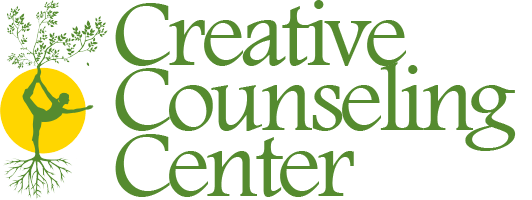Is It Just a Rough Patch, or Is It Time for Therapy?
Life is full of ups and downs. We all experience stress, sadness, or overwhelm from time to time - it’s part of being human. But how do you know when a rough patch is something more? When does it make sense to reach out for help?
Many people wrestle with this question. They tell themselves to “just push through” or downplay their feelings, thinking others have it worse. But emotional struggles aren’t a competition, and you don’t have to wait until you're at a breaking point to benefit from therapy.
In fact, reaching out early can help you regain clarity, build resilience, and prevent deeper emotional or mental health challenges down the road.
Signs You Might Need More Than Self-Care
It's perfectly healthy to turn to self-care strategies - like journaling, taking a walk, or talking to a friend, when you're feeling off. But there are times when those tools aren't quite enough. Here are a few signs that what you're experiencing may call for professional support:
- Persistent Sadness or Hopelessness
If you feel down for more than a couple of weeks and it's hard to shake, that’s a signal your emotional well-being might need deeper attention. - Difficulty Managing Everyday Tasks
Are you struggling to get out of bed, concentrate at work, or keep up with daily responsibilities? When basic functioning becomes a challenge, it's time to explore why. - Changes in Sleep, Appetite, or Energy
Trouble sleeping, constant fatigue, or eating much more or less than usual are physical indicators that something emotional may be going on beneath the surface. - Increased Irritability or Withdrawal
If you find yourself snapping at others, isolating from loved ones, or losing interest in things you used to enjoy, those may be signs of underlying anxiety, depression, or burnout. - Overwhelming Stress or Anxiety
A certain level of stress is normal—but if you’re constantly on edge, having panic attacks, or unable to calm your mind, therapy can help you develop tools to cope and find relief. - Strained Relationships
If conflict, emotional distance, or miscommunication are becoming the norm in your relationships, a therapist can help you identify patterns and create healthier connections.
Therapy Isn’t Just for “Big Problems”
One of the biggest misconceptions about therapy is that it’s only for people in crisis. The truth? Therapy is for anyone who wants to better understand themselves, build emotional resilience, and feel more connected and at peace.
Therapy offers a safe, confidential space to:
- Explore your thoughts and emotions without judgment
- Learn effective coping skills
- Process difficult life events or transitions
- Set boundaries and improve communication
- Heal from past trauma
- Cultivate self-compassion
You don’t have to hit rock bottom to benefit from therapy. Sometimes, the most powerful transformation happens when we give ourselves permission to seek support before things spiral.
A Gentle Nudge to Take the Next Step
If any of this resonates with you—if you’ve been wondering whether you should talk to someone, this may be your sign to reach out.
At Creative Counseling Center, Helen Murry offers compassionate, professional support for individuals navigating life’s challenges. Whether you’re going through a rough patch, managing long-term stress, or simply want to feel more grounded and empowered, Helen is here to help.
You don’t have to do it alone. Healing begins with a conversation. Contact Helen to schedule a confidential consultation.










